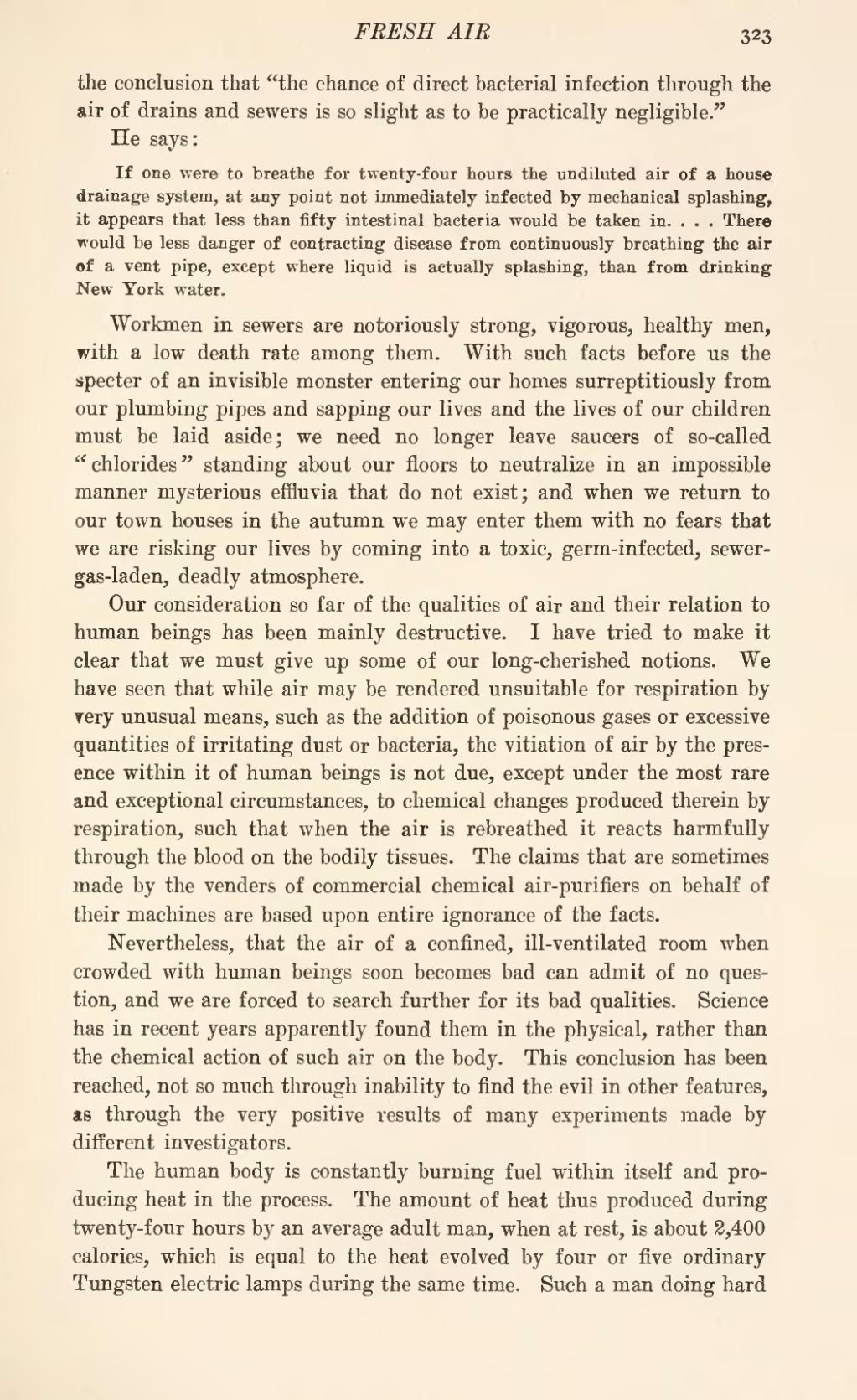the conclusion that "the chance of direct bacterial infection through the air of drains and sewers is so slight as to be practically negligible." He says:
If one were to breathe for twenty-four hours the undiluted air of a house drainage system, at any point not immediately infected by mechanical splashing, it appears that less than fifty intestinal bacteria would be taken in. . . . There would be less danger of contracting disease from continuously breathing the air of a vent pipe, except where liquid is actually splashing, than from drinking New York water.
Workmen in sewers are notoriously strong, vigorous, healthy men, with a low death rate among them. With such facts before us the specter of an invisible monster entering our homes surreptitiously from our plumbing pipes and sapping our lives and the lives of our children must be laid aside; we need no longer leave saucers of so-called "chlorides" standing about our floors to neutralize in an impossible manner mysterious effluvia that do not exist; and when we return to our town houses in the autumn we may enter them with no fears that we are risking our lives by coming into a toxic, germ-infected, sewer-gas-laden, deadly atmosphere.
Our consideration so far of the qualities of air and their relation to human beings has been mainly destructive. I have tried to make it clear that we must give up some of our long-cherished notions. We have seen that while air may be rendered unsuitable for respiration by Tery unusual means, such as the addition of poisonous gases or excessive quantities of irritating dust or bacteria, the vitiation of air by the presence within it of human beings is not due, except under the most rare and exceptional circumstances, to chemical changes produced therein by respiration, such that when the air is rebreathed it reacts harmfully through the blood on the bodily tissues. The claims that are sometimes made by the venders of commercial chemical air-purifiers on behalf of their machines are based upon entire ignorance of the facts.
Nevertheless, that the air of a confined, ill-ventilated room when crowded with human beings soon becomes bad can admit of no question, and we are forced to search further for its bad qualities. Science has in recent years apparently found them in the physical, rather than the chemical action of such air on the body. This conclusion has been reached, not so much through inability to find the evil in other features, as through the very positive results of many experiments made by different investigators.
The human body is constantly burning fuel within itself and producing heat in the process. The amount of heat thus produced during twenty-four hours by an average adult man, when at rest, is about 2,400 calories, which is equal to the heat evolved by four or five ordinary Tungsten electric lamps during the same time. Such a man doing hard
